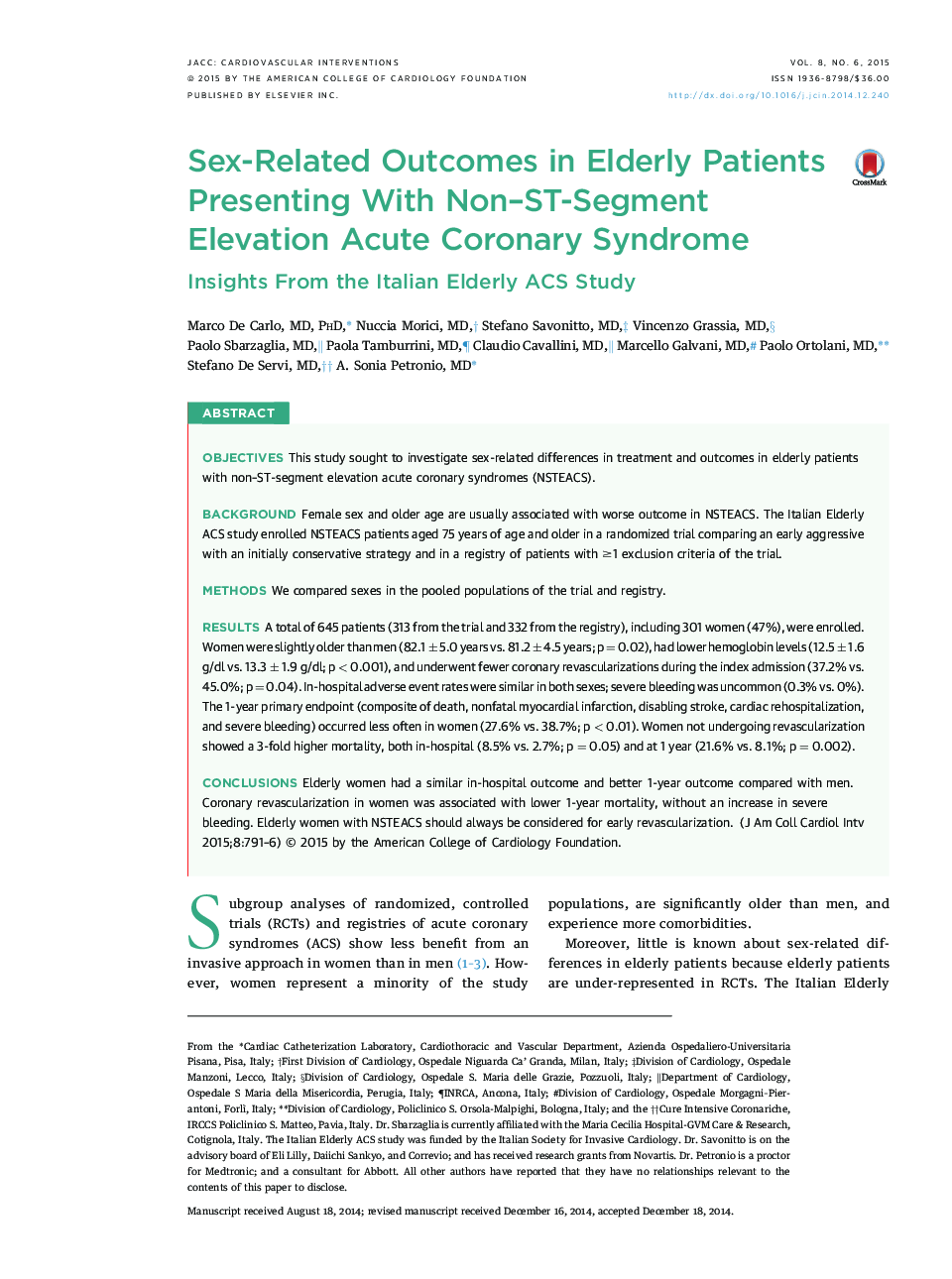| Article ID | Journal | Published Year | Pages | File Type |
|---|---|---|---|---|
| 5980654 | JACC: Cardiovascular Interventions | 2015 | 6 Pages |
ObjectivesThis study sought to investigate sex-related differences in treatment and outcomes in elderly patients with non-ST-segment elevation acute coronary syndromes (NSTEACS).BackgroundFemale sex and older age are usually associated with worse outcome in NSTEACS. The Italian Elderly ACS study enrolled NSTEACS patients aged 75 years of age and older in a randomized trial comparing an early aggressive with an initially conservative strategy and in a registry of patients with â¥1 exclusion criteria of the trial.MethodsWe compared sexes in the pooled populations of the trial and registry.ResultsA total of 645 patients (313 from the trial and 332 from the registry), including 301 women (47%), were enrolled. Women were slightly older than men (82.1 ± 5.0 years vs. 81.2 ± 4.5 years; p = 0.02), had lower hemoglobin levels (12.5 ± 1.6 g/dl vs. 13.3 ± 1.9 g/dl; p < 0.001), and underwent fewer coronary revascularizations during the index admission (37.2% vs. 45.0%; p = 0.04). In-hospital adverse event rates were similar in both sexes; severe bleeding was uncommon (0.3% vs. 0%). The 1-year primary endpoint (composite of death, nonfatal myocardial infarction, disabling stroke, cardiac rehospitalization, and severe bleeding) occurred less often in women (27.6% vs. 38.7%; p < 0.01). Women not undergoing revascularization showed a 3-fold higher mortality, both in-hospital (8.5% vs. 2.7%; p = 0.05) and at 1 year (21.6% vs. 8.1%; p = 0.002).ConclusionsElderly women had a similar in-hospital outcome and better 1-year outcome compared with men. Coronary revascularization in women was associated with lower 1-year mortality, without an increase in severe bleeding. Elderly women with NSTEACS should always be considered for early revascularization.
